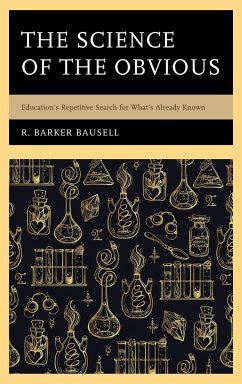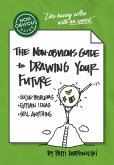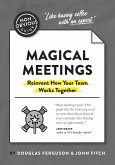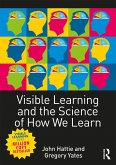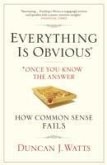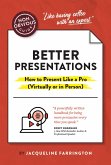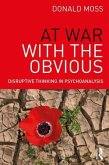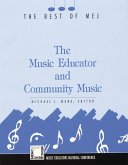- Gebundenes Buch
- Merkliste
- Auf die Merkliste
- Bewerten Bewerten
- Teilen
- Produkt teilen
- Produkterinnerung
- Produkterinnerung
This book poses and ultimately answers the question of whether the public schools would have been affected if no educational research had been conducted during this century.
Andere Kunden interessierten sich auch für
![The Non-Obvious Guide to Drawing Your Future The Non-Obvious Guide to Drawing Your Future]() Patti DobrowolskiThe Non-Obvious Guide to Drawing Your Future32,99 €
Patti DobrowolskiThe Non-Obvious Guide to Drawing Your Future32,99 €![The Non-Obvious Guide to Magical Meetings (Reinvent How Your Team Works Together) The Non-Obvious Guide to Magical Meetings (Reinvent How Your Team Works Together)]() Ferguson DouglasThe Non-Obvious Guide to Magical Meetings (Reinvent How Your Team Works Together)20,99 €
Ferguson DouglasThe Non-Obvious Guide to Magical Meetings (Reinvent How Your Team Works Together)20,99 €![Visible Learning and the Science of How We Learn Visible Learning and the Science of How We Learn]() John HattieVisible Learning and the Science of How We Learn37,99 €
John HattieVisible Learning and the Science of How We Learn37,99 €![Everything is Obvious Everything is Obvious]() Duncan J. WattsEverything is Obvious20,99 €
Duncan J. WattsEverything is Obvious20,99 €![The Non-Obvious Guide to Presenting Virtually (With or Without Slides) The Non-Obvious Guide to Presenting Virtually (With or Without Slides)]() Jacqueline FarringtonThe Non-Obvious Guide to Presenting Virtually (With or Without Slides)22,99 €
Jacqueline FarringtonThe Non-Obvious Guide to Presenting Virtually (With or Without Slides)22,99 €![At War with the Obvious At War with the Obvious]() Moss, Donald, PhDAt War with the Obvious61,99 €
Moss, Donald, PhDAt War with the Obvious61,99 €![The Music Educator and Community Music The Music Educator and Community Music]() The Music Educator and Community Music28,99 €
The Music Educator and Community Music28,99 €-
-
-
This book poses and ultimately answers the question of whether the public schools would have been affected if no educational research had been conducted during this century.
Hinweis: Dieser Artikel kann nur an eine deutsche Lieferadresse ausgeliefert werden.
Hinweis: Dieser Artikel kann nur an eine deutsche Lieferadresse ausgeliefert werden.
Produktdetails
- Produktdetails
- Verlag: Rowman & Littlefield
- Seitenzahl: 156
- Erscheinungstermin: 25. September 2017
- Englisch
- Abmessung: 235mm x 157mm x 13mm
- Gewicht: 386g
- ISBN-13: 9781475838138
- ISBN-10: 1475838131
- Artikelnr.: 48328511
- Herstellerkennzeichnung
- Libri GmbH
- Europaallee 1
- 36244 Bad Hersfeld
- gpsr@libri.de
- Verlag: Rowman & Littlefield
- Seitenzahl: 156
- Erscheinungstermin: 25. September 2017
- Englisch
- Abmessung: 235mm x 157mm x 13mm
- Gewicht: 386g
- ISBN-13: 9781475838138
- ISBN-10: 1475838131
- Artikelnr.: 48328511
- Herstellerkennzeichnung
- Libri GmbH
- Europaallee 1
- 36244 Bad Hersfeld
- gpsr@libri.de
Dr. R. Barker Bausell was the first educational researcher to demonstrate the learning superiority of both tutoring and small group instruction when the curriculum, teacher differences, instructional time, and student differences were rigorously controlled. He served as a biostatistician, research methodologist, and the Director of Research in two departments within the University of Maryland over a 35+ year career and was the founding editor/editor-in-chief of the peer reviewed, Evaluation and the Health Profession for 33 of those years. He has authored 12 other books including: Conducting Meaningful Experiments: 40 Steps to Becoming a Scientist, Too Simple to Fail: A Case for Educational Change, and Snake Oil Science: The Truth about Complementary and Alternative Medicine.
Introduction Chapter One: Some Examples of Educational Research that Aren't
Chapter Two: Contributors to this Sad State of Affairs Chapter Three: Four
Once Useful Influential Genres That We Probably No Longer Need Genre #1:
Classic Learning Research Genre #2: Secondary Analyses of Test Scores Genre
#3: Preschool or Extra-School Descriptive/Correlational Educational
Studies. Genre #4: School-Based, Descriptive/Observational Studies. Chapter
Four: Three Research Genres That Were Never Useful and Should Be Abandoned
Research Genre #5: Psychometric research: Research Genre #6: Meta-Analysis:
Genre #7: Scale-up experiments. Chapter Five: Three Genres that Could Have
Some Potential for Creating a Meaningful Science Genre #8: Experiments
Conducted under Veridical Schooling Conditions. Genre #9: Natural
Experiments (Evaluations) Conducted within Schools. Genre #10: Experiments
Conducted in Schools under Laboratory Conditions Chapter Six: Genre #11 -
Programmatic Educational Research Conducted by a Single Investigator
Chapter Seven: Genre #12 - Recent, Well-Designed Genre-Crossing Research
Considered Important Enough to Garner Media Attention Final Thoughts
References
Chapter Two: Contributors to this Sad State of Affairs Chapter Three: Four
Once Useful Influential Genres That We Probably No Longer Need Genre #1:
Classic Learning Research Genre #2: Secondary Analyses of Test Scores Genre
#3: Preschool or Extra-School Descriptive/Correlational Educational
Studies. Genre #4: School-Based, Descriptive/Observational Studies. Chapter
Four: Three Research Genres That Were Never Useful and Should Be Abandoned
Research Genre #5: Psychometric research: Research Genre #6: Meta-Analysis:
Genre #7: Scale-up experiments. Chapter Five: Three Genres that Could Have
Some Potential for Creating a Meaningful Science Genre #8: Experiments
Conducted under Veridical Schooling Conditions. Genre #9: Natural
Experiments (Evaluations) Conducted within Schools. Genre #10: Experiments
Conducted in Schools under Laboratory Conditions Chapter Six: Genre #11 -
Programmatic Educational Research Conducted by a Single Investigator
Chapter Seven: Genre #12 - Recent, Well-Designed Genre-Crossing Research
Considered Important Enough to Garner Media Attention Final Thoughts
References
Introduction Chapter One: Some Examples of Educational Research that Aren't
Chapter Two: Contributors to this Sad State of Affairs Chapter Three: Four
Once Useful Influential Genres That We Probably No Longer Need Genre #1:
Classic Learning Research Genre #2: Secondary Analyses of Test Scores Genre
#3: Preschool or Extra-School Descriptive/Correlational Educational
Studies. Genre #4: School-Based, Descriptive/Observational Studies. Chapter
Four: Three Research Genres That Were Never Useful and Should Be Abandoned
Research Genre #5: Psychometric research: Research Genre #6: Meta-Analysis:
Genre #7: Scale-up experiments. Chapter Five: Three Genres that Could Have
Some Potential for Creating a Meaningful Science Genre #8: Experiments
Conducted under Veridical Schooling Conditions. Genre #9: Natural
Experiments (Evaluations) Conducted within Schools. Genre #10: Experiments
Conducted in Schools under Laboratory Conditions Chapter Six: Genre #11 -
Programmatic Educational Research Conducted by a Single Investigator
Chapter Seven: Genre #12 - Recent, Well-Designed Genre-Crossing Research
Considered Important Enough to Garner Media Attention Final Thoughts
References
Chapter Two: Contributors to this Sad State of Affairs Chapter Three: Four
Once Useful Influential Genres That We Probably No Longer Need Genre #1:
Classic Learning Research Genre #2: Secondary Analyses of Test Scores Genre
#3: Preschool or Extra-School Descriptive/Correlational Educational
Studies. Genre #4: School-Based, Descriptive/Observational Studies. Chapter
Four: Three Research Genres That Were Never Useful and Should Be Abandoned
Research Genre #5: Psychometric research: Research Genre #6: Meta-Analysis:
Genre #7: Scale-up experiments. Chapter Five: Three Genres that Could Have
Some Potential for Creating a Meaningful Science Genre #8: Experiments
Conducted under Veridical Schooling Conditions. Genre #9: Natural
Experiments (Evaluations) Conducted within Schools. Genre #10: Experiments
Conducted in Schools under Laboratory Conditions Chapter Six: Genre #11 -
Programmatic Educational Research Conducted by a Single Investigator
Chapter Seven: Genre #12 - Recent, Well-Designed Genre-Crossing Research
Considered Important Enough to Garner Media Attention Final Thoughts
References

